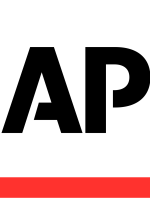With Republicans firmly opposed to a 45-cents-a-gallon fuel tax hike, Democratic lawmakers want businesses to do more to help fix the roads.
A new $1.2 billion proposal from House Democrats would raise the state's corporate tax, create a new 6-cents-a-mile tax for heavy trucks and charge bridge tolls to tractor-trailers. It also includes portions of Gov. Gretchen Whitmer's budget plan, such as raising taxes on certain businesses so they are taxed the same as traditional corporations and restoring tax breaks for pensioners.
House Minority Leader Christine Greig said Democrats agree with the Democratic governor's call for $2.5 billion in new revenue and know that a fuel tax increase would likely be part of any final deal.
"We just felt it was important that we brought other ideas in since we haven't seen anything other than a shell game and shifting around revenue from the Republicans, but yet they've said that they're not going to support a 45-cent gas increase. So let's put some new ideas on the table to get us to the $2.5 billion," she told The Associated Press on Friday.
By releasing the plan, Democrats risked it looking like they oppose Whitmer's fuel tax hike, which Republicans who control the Legislature have said is going nowhere and which Democrats have not introduced as legislation. Greig, of Farmington Hills, said Democrats are "100% supportive" of generating new revenue and their proposal is based on feedback from constituents.
"We just think that if you're really struggling to a negotiation, that implies that you bring a bunch of different ideas and come up with a compromise," she said.
Some in the business lobby have said raising gasoline and diesel taxes is simple and fair because everyone pays, including companies that move goods or have employees on the roads. Yet Greig said what they pay is not "proportionate."
"To attract business, to attract talent, to keep our communities strong that support businesses, we have to have good roads and bridges," she said, noting that businesses saw a $1 billion-plus tax cut under a 2011 overhaul enacted by Republicans. "Since that happened, we've seen our roads and infrastructure deteriorate. We've seen our ranking in schools drop nationally. So something is not right. To put this all on the backs of individuals is short-sighted."
Increasing the 6% corporate income tax to 8.5% and raising taxes on flow-through entities, Greig said, would lead to businesses paying $800 million more annually — but still less than they were before the 2011 change. Assessing a vehicle-miles-traveled tax on the two heaviest classes of trucks would generate $390 million from those who cause the most road damage, she said, while the bridge tolls — based on a unique program in Rhode Island — would raise about $50 million.
Road-funding and budget negotiations are expected to extend into the summer as legislators scale back their voting days starting this coming week.
Greig urged the business community to "come to the table and say, 'We will accept contributing more directly to the solution.'"
Republicans and business groups oppose raising business taxes, however, saying lower taxes help the economy. To soften the impact of a 45-cent gas tax increase by easing the tax burden on seniors, Whitmer has proposed boosting taxes on 150,000 corporations, partnerships and limited liability companies whose income is passed through to the entities' owners and taxed at the personal rate of 4.25 percent. The Senate's Republican leader has called it "stupid."
So far, the main component to emerge from Republicans' road-funding work is a budget plan in the House that would ultimately ensure $850 million in sales tax being collected at the pump goes to roads, without raising taxes. The revenue now primarily is dedicated to schools and municipalities.
Greig said it is "confusing" that a portion of fuel taxes funds other priorities and she has no problem "cleaning up revenue streams." But new revenue should be generated to replace it, she said.
"They're not doing that. That's the problem," she said. "We're basically doing it on the backs of local governments and kids, frankly."






